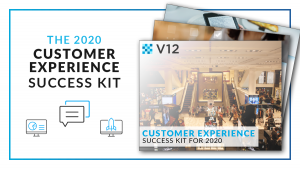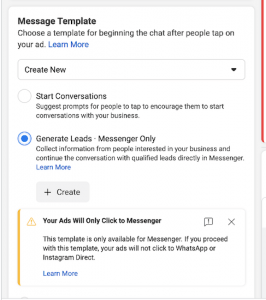— April 26, 2018
When most people think of a social media influencer platform, they assume it involves finding bloggers with massive followings and buying social endorsements from big celebrities. Research shows, however, that it’s more effective to build relationships with the right micro-influencers and invest in an influencer marketing platform that allows for end-to-end campaign management – not just parts and pieces.
Micro-influencers tend to have more active and engaged audiences who are more likely to act on those influencers’ recommendations. In fact, 82% of consumers say they’re highly likely to follow a recommendation made by a micro-influencer1. They are seen as more credible and more knowledgeable about how a product works or could be used than a celebrity spokesperson. Because niche influencers aren’t as inundated with brand pitches, it’s also much easier to access, engage, and build real relationships with these influencers.
Now which of these options would your marketing team choose: Spending time trying to force (or buy) sponsorships with big-name analysts or celebrities, or creating relationships and long-term opportunities that allow micro-influencers to do the talking for you?
The former technically falls into the display advertising bucket and, to be clear, it can be effective if your brand and budget are big enough, or your product/story is truly disruptive. But most brands would be wise to direct their resources towards tools and technology that can help partners become megaphones for their business.

– The Mini Playbook –
What To Look For In A Social Media Influencer Platform
Investing in a social media influencer platform can help your brand methodically cultivate an engaged network, generate unique share links to track activity, manage earnings and payments, and most importantly, optimize and run better campaigns.
With so many different players on the field today, we’ve put together a mini playbook of what to look for when you’re in the market for a solution. Here are four main things to consider when evaluating technology vendors.
1. Easy Enrollment
Whether your campaign is invitation-only or open to as many brand ambassadors that can fit, an influencer platform should allow you to easily build customized programs with varying types of enrollment criteria.
2. Track Engagement
One of the most attractive things about leveraging technology is its ability to do the heavy lifting for you so your team can focus on other priorities. A major must-have in a platform is the capability to manage all of your influencers on one platform and accurately track sharing activity and key performance indicators across multiple devices and social channels.
3. Reward Specific Activities
A key feature to look for in an influencer platform for social media is the ability to customize the activity – or activities – you want to reward, and automate the payout process for influencers with incentives like cash, points, credits, or gift cards.
4. Optimize and Manage
Dashboards, reporting capabilities, KPI tracking – make sure the technology enables you to pay close attention to the metrics. You want the ability to keep a pulse on what’s working and what isn’t, so that you can optimize the results and make the necessary changes to maximize your return on investment.
With influencer marketing driving millions of dollars in sales every year, it’s no surprise that it’s one of the most coveted sources of marketing. By leveraging a social media influencer platform, marketers can massively scale their influencer marketing efforts and its contribution to the bottom line. Revenue is tangible and meaningful to company executives, board members, and investors in ways that shares, tweets, and likes never will be.
The reality is that your time and money is better spent on developing relationships with bloggers, social influencers, fans, and followers — the people on the front lines who have true influence over the audiences you’re trying to target. And technology can make that simpler to manage.
[1] Experticity: Research Shows Micro-Influencers Have More Impact Than Average Consumers
Digital & Social Articles on Business 2 Community
(44)







